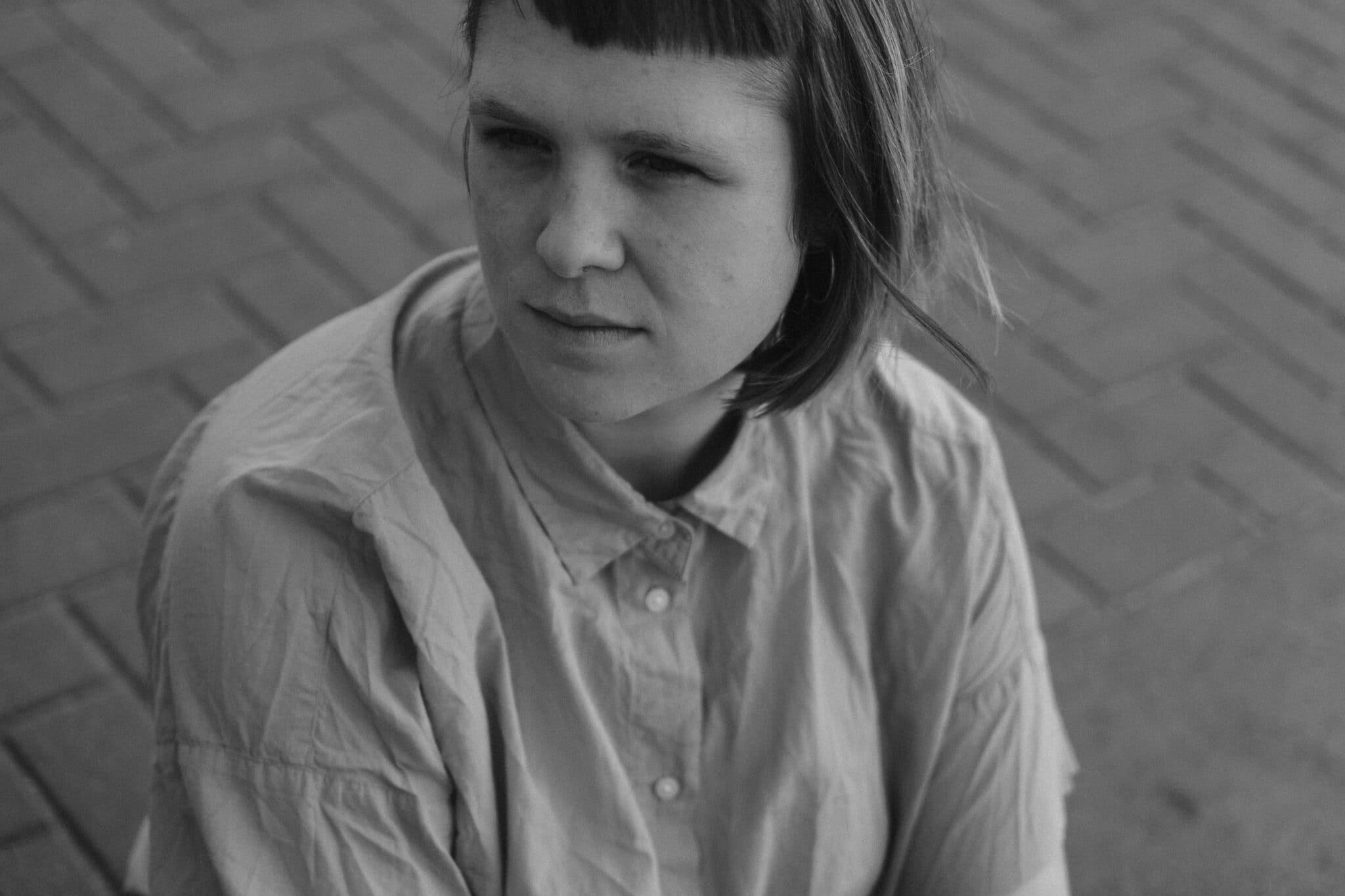Eilis Frawley’s “Darkest Truth” Confronts the Uncomfortable Reality of Sexual Assault
By Marie Sophie Beckmann, Art by Janina Gallert and Emma Taggert
Eilis Frawley’s “Darkest Truth” Confronts the Uncomfortable Reality of Sexual Assault
By Marie Sophie Beckmann, Art by Janina Gallert

In Eilis Frawley’s songs, the personal is political. From her frustrations with mansplaining and neoliberal productivity regimes to personal sexual assault experiences, the Australian-born, Berlin-based drummer and percussionist doesn’t shy away from the heavy stuff. Eilis’s solo project combines precise rhythms and catchy synth beats with straightforward and powerful spoken word performances. A former member of the bands Party Fears and I Drew Blank, Eilis will release her second solo EP “Adult Life” with Reckless Yes in October. On the occasion of the video premiere of her latest song “Darkest Truth” here on DADDY, we talked to Eilis about why it’s time to go from ‘rock n roll’ to ‘fair n safe.’
TRIGGER WARNING: the video and interview explicitly deal with sexual violence, which may be triggering to survivors
Retelling an experience of sexual assault in detail, “Darkest Truth” is openly and intensely personal. Even if–or maybe precisely because–the story is so painful, there is a lot of power in making it public. Who is this song for?
Eilis: When I wrote this song, I wasn’t thinking about its audience; I wrote it for me. But when thinking about its release–I shied away from putting it on my first EP–, it became clear that it needs to be for everyone, not only those who’ve experienced sexual assault. It’s scary to put out something so personal, but one in three women experience sexual or physical assault, and it’s still a taboo in society. We need to keep talking.
Rape and sexual assault are still heavily tabooed and stigmatized subjects. Many women don’t speak up out of fear that nobody will believe them or they will be shamed. “Darkest Truth” addresses this as well. What made you write this song now?
Eilis: For years, I bottled it up inside me, speaking only with my closest friends. At the time, I was young and partying a lot, so I put a lot of the blame on myself. I wrote the words a few years ago, and when developing my solo project, it found a musical home. It’s a heavy topic, but that’s the power of art. My story is uncomfortable, but until we as a society find a better way to address sexual assault, it always will be.
How would you say these sensitive topics are dealt with in the independent music scene?
Eilis: It’s changing most certainly. Look at the collective efforts to dismantle Burger records a few months ago. It’s unfortunate that so many terrible things need to happen before they’re taken seriously. People are pulling together to out repetitive abusers, and no one is backing down. Venues and promoters are pulling together to create safe spaces, but it’s not only the responsibility of those working there. It’s everyone’s responsibility to call out their peers for bad behavior. If one in three women have experienced sexual or physical assault, the odds are we all know someone on the other side of that statistic. We need to educate and change this ‘rock n roll’ lifestyle. Let’s go for ‘fair n safe.’
Your songs often address topical subjects in feminist debates. “Intellectual Men” is about mansplaining in the music scene. The recently released “Stats” cites statistics on sexual abuse, domestic violence, women’s health, and everyday sexism. Can you talk a bit about the resonance you’ve received so far?
Eilis: It seems to affect everyone differently. Some relate personally to the topics, and others feel overwhelmed and shocked by the reality. A few feel both. “Stats” deals so factually with sexism that there’s no room for debate. You need to sit with it. I want to cover feminist topics and discuss the heavy stuff, but the real challenge is making it for everyone. My women peers already know this reality. Now we need to spread it wider.
What really stands out are your lyrics, which are spoken instead of sung and made me think of other female musicians who developed a unique use of their voice like Laurie Anderson, Patti Smith, or Lydia Lunch. Do you see yourself in this tradition?
Eilis: Grateful to end on a positive note! I wish my connection to spoken word came from a more creative or meaningful place. A few years ago, I was in the final audition round for a job in a circus. They asked me to send an original video using drums and electronics. I can’t sing, so I recorded “Intellectual Men” from Melissa McEwan with my phone and ran it through a sample pad. I didn’t get the job, but that became my first video. I was overwhelmed by the response, and my friends pushed me to do more. Now we’re here. I still can’t sing, and spoken word has become my jam. It’s sobering telling stories with zero melody. It demands listening and isn’t always pretty, but there’s a power in it.
People of all genders are survivors of sexual violence, but women, girls, and those of trans experience are particularly at risk. For further resources contact:
Get DADDY in your Inbox
Stay in the loop by subscribing to our newsletter